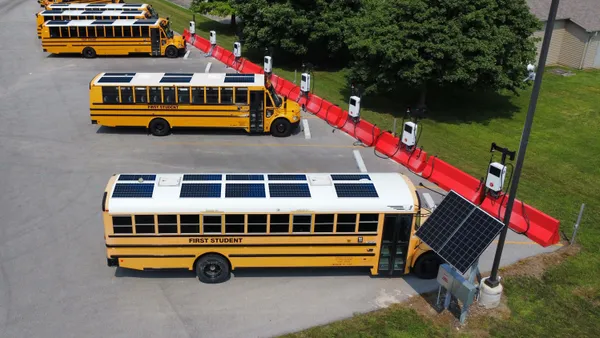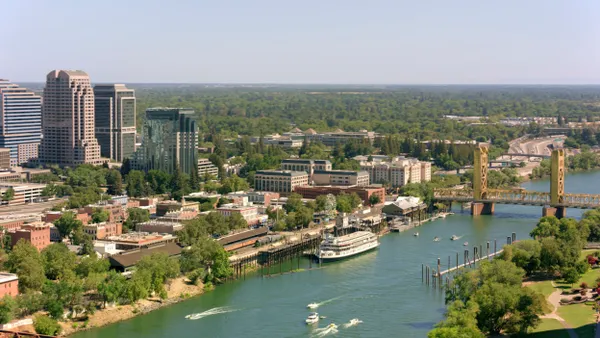Dive Brief:
- A new report from the American Public Transportation Association (APTA) called on cities to expand and invest in late-night transit service to support the growing population of people who work late shifts, including in the service sector.
- The report found that late-shift workers in metropolitan areas are 40% less likely to commute via public transit if there are inadequate connections. APTA found that 17% of metropolitan areas' overall workforces are made up of individuals who work the late shift, typically between 4 p.m. and 6 a.m.
- To expand service, APTA suggested transit agencies expand hours of service and fund them adequately; put in more employee incentive programs to ride transit; and partner with ride-hailing companies to help augment service.
Dive Insight:
CEO Paul Skoutelas told reporters on a conference call that the U.S. economy is becoming "a service sector economy; a 24/7 economy." Late-shift transit commuters earn an estimated $28 billion in wages and generate $84 billion in sales each year, but he noted that a majority earn lower wages and rely on public transit. If they stop work at an off-hour, they can be left with few viable options to get home.
Some cities are already seeking new ways to make it easier for late-night transit riders to get around, primarily through partnering with ride-hailing companies. Washington, DC's Metro system now provides discounted Lyft rides after the system closes, and has floated the idea of partnering with taxi firms.
It is a similar story in Detroit, which has looked to be creative in its new mobility offerings. The city partnered with Lyft to provide a $7 discount on every ride for someone who gets off a bus between 11 p.m. and 5 a.m. During the call, Mark de la Vergne, Detroit's chief of mobility innovation, said programs like that are designed to be "complementary to transit, as opposed to something that is taking away our ridership."
While budgetary concerns are high around running extended service, some cities are already moving in that direction. Detroit has 12 24-hour bus routes citywide, while de la Vergne said it has looked to enhance safety by bolstering bus shelters and lighting, including at intersections.
Katharine Kelleman, CEO of the Port Authority of Allegheny County, PA, said late-night service is becoming a major point of emphasis for big employers when they look to move into new cities. The need for strong transportation was a key part of Amazon’s decision to locate its second headquarters (HQ2) in Arlington County, VA, and a major factor in why many cities fell short in their bids. "They understand the best thing they can do for their employees is be anchored into a robust network," she said.











